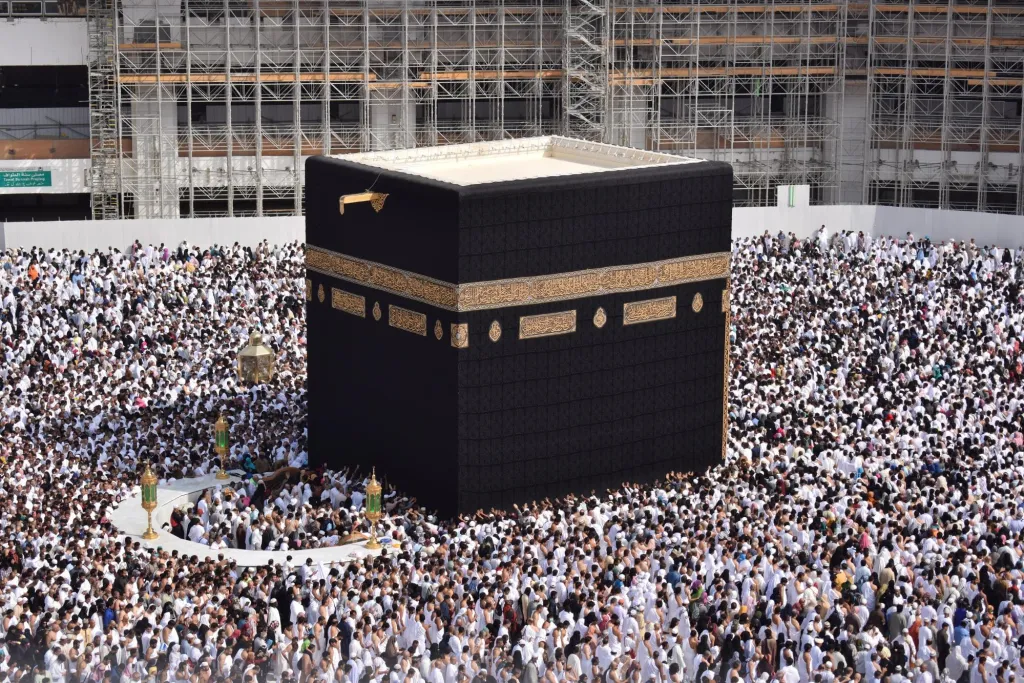HalalZilla consults the great archives of football to handpick our top Muslim players who’ve ever laced a pair of boots in the big leagues – especially those you didn’t know were Muslim!
9 Islamic Festivals To Mark on Your Calendars

When we think of Islamic holidays, what comes to mind are the major ones like Eid al-Fitr and Eid al-Adha. These are also the ones that are widely celebrated today, but did you know that there are many other smaller-scale festivals that exist in Islam?
Although they may not have their own major celebrations, it’s still fascinating and meaningful to learn about the significance of these festivals. Many of them are tied to historical happenings and key occurrences in the Islamic world. Different parts of the world also celebrate each festival uniquely. Here are nine Islamic festivals you should make a mental note of!
Note: This is an approximation and dates may vary according to country and actual location.
1. Muharram
When: 1 Muharram / 1 September 2019
Significance: Also known as the Islamic New Year, this is the day that marks the beginning of a new Hijri year on the Islamic lunar calendar. Muharram is considered a holy month, second only to Ramadan in its significance.
How to benefit: For many Muslims, the New Year represents a period of self-reflection and historical awareness. Fasting is encouraged on the tenth day of Muharram, also known as Ashura.
2. Mawlid al-Nabi
When: 12 Rabi al-awwal / 12 November 2019
Significance: The birthday of Prophet Muhammad (PBUH)
How to benefit: There are many opinions regarding the celebration of the Prophet’s birthday, whether to have big celebrations or not. Ultimately it’s a matter of personal opinion. Nevertheless, popular celebrations include readings from the Quran, poetry recitations, singing of songs commemorating Prophet Muhammad’s virtues and distribution of food to the poor on his behalf.
3. Laylat al-Mi’raj
When: 27 Rajab / 22 March 2020
Significance: The festival that commemorates Prophet Muhammad’s arduous night journey from Mecca to the ‘Farthest Mosque’ in Jerusalem where he ascended to heaven, was purified and given the instruction for Muslims to pray five times a day.
How to benefit: There are no special modes of worship prescribed by the Shari’ah in this night, but many people use this as a time to recount the story of the Prophet’s night journey.
4. Nisfu Sha’ban
When: 14 Sha’ban / 8 April 2020
Significance: Also known as the Night of Forgiveness, this night is believed to be one of the five nights where dua (supplications) are accepted, specifically ones asking for repentance.
How to benefit: Fasting is encouraged since, according to Islamic tradition, the Prophet Muhammad fasted more in Sha’ban than he did any other month.
5. Ramadhan
When: The ninth month of the Islamic calendar / 24 April – 23 May 2020
Significance: Considered the holiest month in the Islamic calendar, this is the month whereby Muslims observe fasting from sunrise to sunset.
How to benefit: During this month, Muslims all over the world perform obligatory fasts every day, fulfilling one of the five pillars on which Islam is built.
Also read: Ramadan and Islam: Why Do Muslims Fast?
6. Laylat al-Qadr
When: Falls on one of the last 10 days of Ramadhan
Significance: Also known as the Night of Power, this is a single night that’s worth a thousand months of reward in Islam. It’s known to be the night that the revelation of the Holy Quran was sent down to the Prophet Muhammad as guidance for all mankind.
How to benefit: Any good acts or deeds completed on this single night are equivalent to if you had performed that one act for a thousand months. Hence, good acts are highly encouraged in this night. Some good deeds include reciting the Holy Quran, making lots of dua, giving to charity and performing i’tikaf (spiritual retreat).
Also read: Laylatul Qadr and The Last 10 Nights of Ramadan
7. Eid al-Fitr
When: 1 Shawal / 24 May 2020
Significance: Also known as the Festival of Breaking the Fast, this is a religious holiday celebrated by Muslims worldwide. It’s celebrated many different ways around the world, typically highly influenced by the respective cultures that Muslims are a part of.
How to benefit: Several traditions are observed on Eid al-Fitr, one of which involves Eid prayers.
Also read: Celebrating Eid in Singapore, As Told by the HalalZilla Team
8. Hajj
When: From 8 to 10 Dhu al-Hijjah / From 9 to 11 August 2019
Significance: Hajj is an annual Islamic pilgrimage made to Kaaba or “House of God”, in the sacred city of Mecca in Saudi Arabia. The rites of Hajj are performed over five or six days, beginning on the eighth and ending on the thirteenth day of Dhu al-Hajjah, the last month of the Islamic calendar.
How to benefit: As the fifth and final pillar of Islam, the Hajj is performed by many pilgrims yearly who visit the Holy Land. There, they dedicate their time to performing acts of worship and strengthening their faith.
9. Eid al-Adha
When: 10 Dhu al-Hijjah / 10 August 2019
Significance: Also known as the Festival of Sacrifice, is one of the two Eid holidays celebrated by Muslims across the world.
How to benefit: Many Muslims engage in the Eid al-Adha prayers, visit family and also symbolically sacrifice an animal in an act known as Qurban. Qurban represents the animal that Ibrahim sacrificed in the place of his son. Fasting on the Day of Arafat (9 Dhu al-Hijjah) is also highly encouraged for those not going on hajj, as it’s said that fasting on this day expiates the sins of the past year and the coming year.
Published at
About Author
Nadhira Putri
Subscribe our Newsletter
Get our weekly tips and travel news!
Recommended Articles
10 Muslim Footballers That Will Inspire You And Your Goals 12 Culture Shocks You’ll Experience During Umrah Welcome to the land of blessings & calmness ~
2019 Emirates FA Cup Final Winners Will Celebrate With Non-Alcoholic Champagne Regardless of the team you support, it’s heartening to know that the winners will be offered non-alcoholic champagne to cater to those who don’t drink.
2025 Japan Fireworks Festival Guide: Dates, Locations & Muslim-Friendly Tips It's hanabi taikai season ~~
4 Hijab-Friendly Spas in Singapore For Your Raya Glow Up Do you want to look your best this Hari Raya? These hijab-friendly spas in Singapore will not only pamper you but also make sure you are #RayaReady.
Latest Articles
10 Most Stunning Camping Spots in Yogyakarta, From Mountain Peaks to Riversides for Muslim Adventurers Level up your adventure!
10 Nature-Themed Cafes in Batu, Malang for A Halal-Friendly and Soul-Soothing Escape Escape to nature!
10 Best Hotels in PIK Jakarta for a Fun Family Staycation: Strategic & Stylish perfect destination for a quick weekend escape or a fun-filled family staycation
No Flight Needed! 9 Jakarta Hotels That Give You Major Bali Vibes Jakartahides some secret "oases" that can make you feel like Bali
17 Stunning Filming Locations of "Can This Love Be Translated?": From Japan to Canada not just the romance that’s stealing the spotlight—it's the breathtaking scenery

